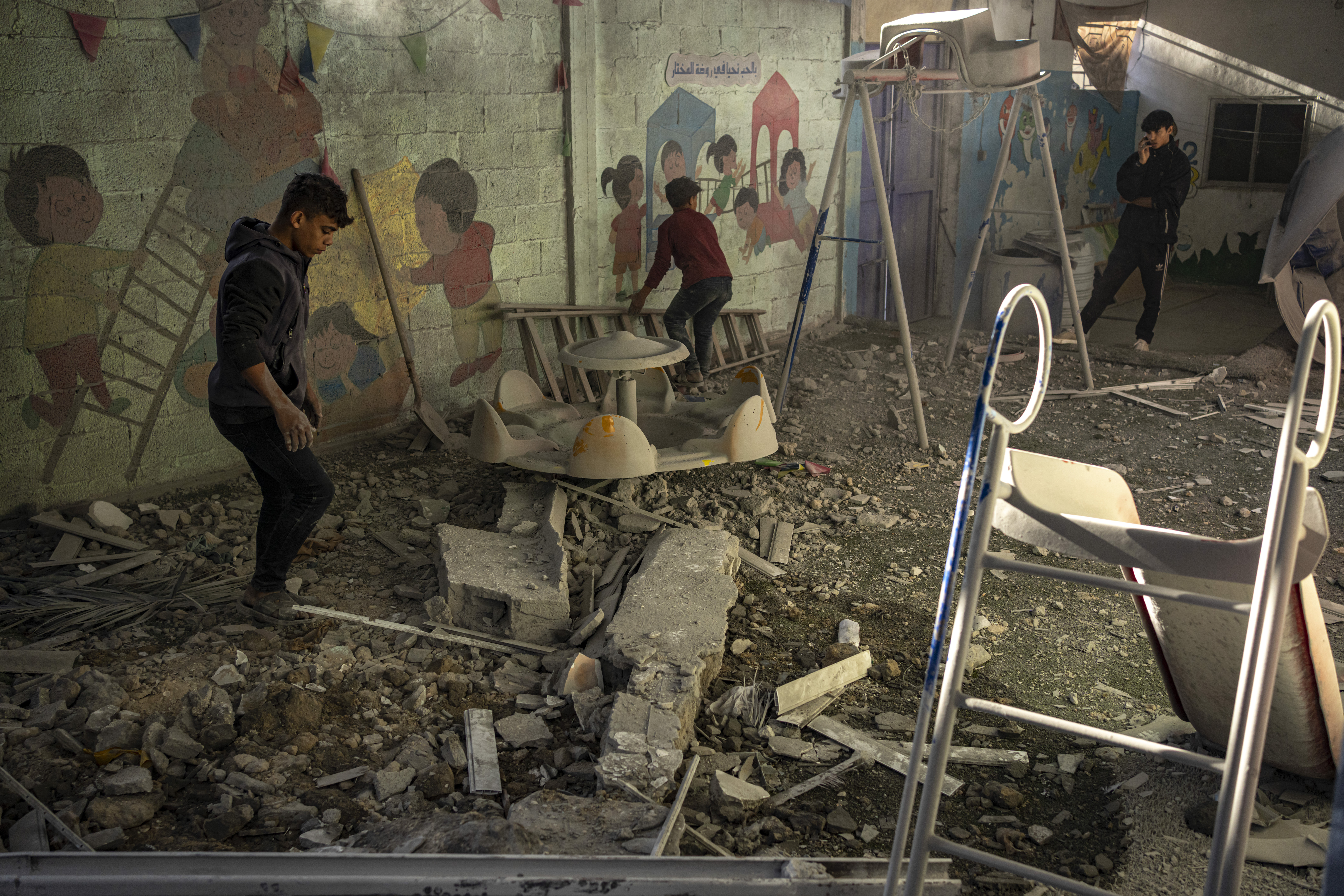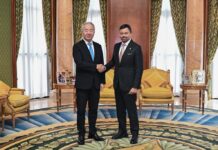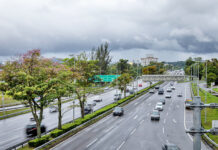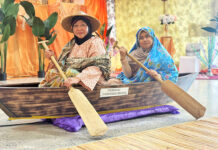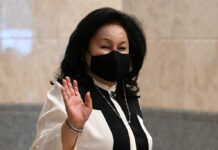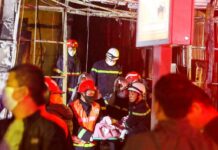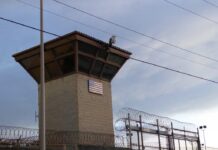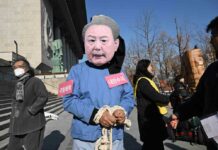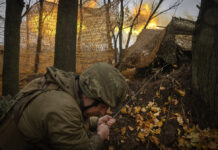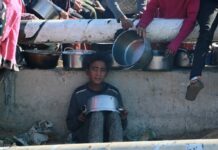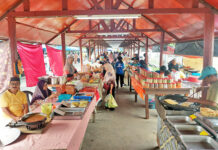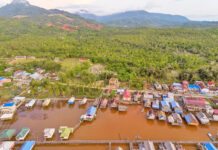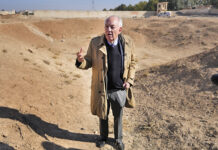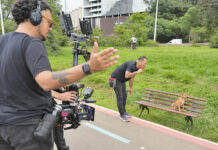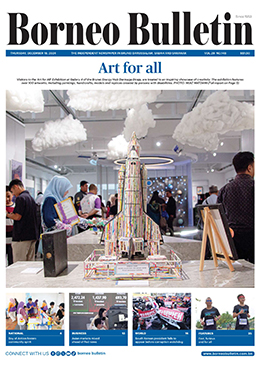DEIR AL-BALAH, Gaza Strip (AP) — Israel’s occupation forces pushed ahead with its punishing air and ground offensive in Gaza on Saturday, bolstered by a US veto derailing UN Security Council efforts to end the war and word that an emergency sale of USD106 million worth of tank ammunition had been approved by Washington.
Unable to leave Gaza, a territory 40 kilometres long by about 11 kilometres wide, more than 2 million Palestinians faced more bombardment Saturday, even in areas that Israel had described as safe zones.
The sale of nearly 14,000 rounds of tank ammunition was announced a day after the US vetoed a UN Security Council resolution demanding an immediate cease-fire in Gaza, a measure that had wide international support. The US said Secretary of State Antony Blinken determined that “an emergency exists” in the national interest requiring the immediate sale, meaning it bypasses congressional review. Such a determination is rare.
A day after Israel confirmed it was rounding up Palestinian men for interrogation, some men released Saturday told The Associated Press they had been abused, providing the first accounts of the conditions from the detentions.
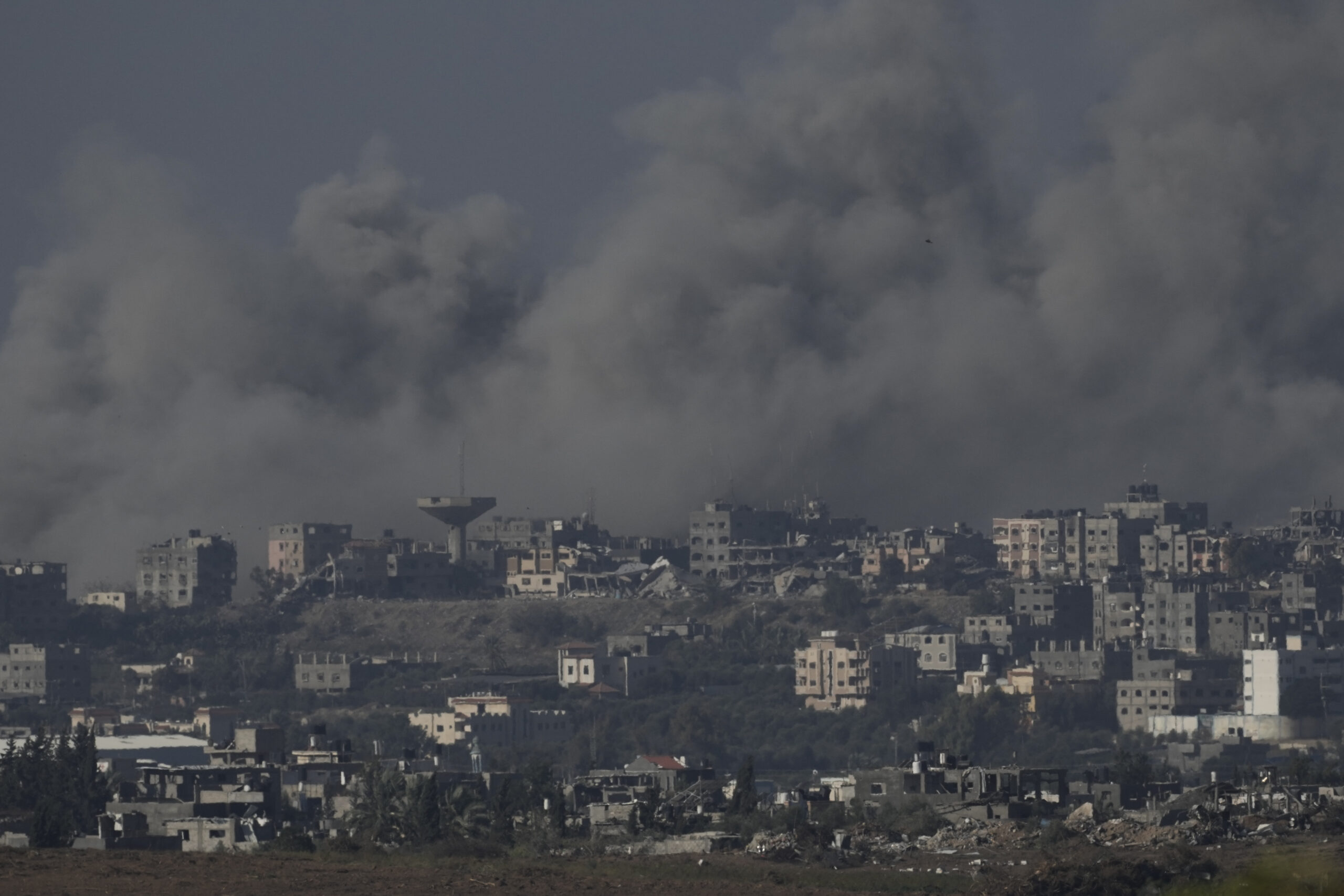
Osama Oula said Israeli troops had pulled men out of a building in the Shujaiyah area of Gaza City, ordering them to the street in their underwear. Oula said Israeli forces bound him and others with zip ties, beat them for several days and gave them little water to drink.
Ahmad Nimr Salman showed his hands, marked and swollen from the zip ties, and said older men with diabetes or high blood pressure were ignored when they asked soldiers to remove their ties.
He said the troops asked, “‘Are you with Hamas?’ We say ‘no,’ then they would slap us or kick us.” He said his 17-year-old son Amjad is still held by the troops.
The group was released after five days and told to walk south. Ten freed detainees arrived at a hospital in Deir al-Balah on Saturday after flagging down an ambulance.
The Israeli occupation forces had no immediate comment when asked about the alleged exploitations.
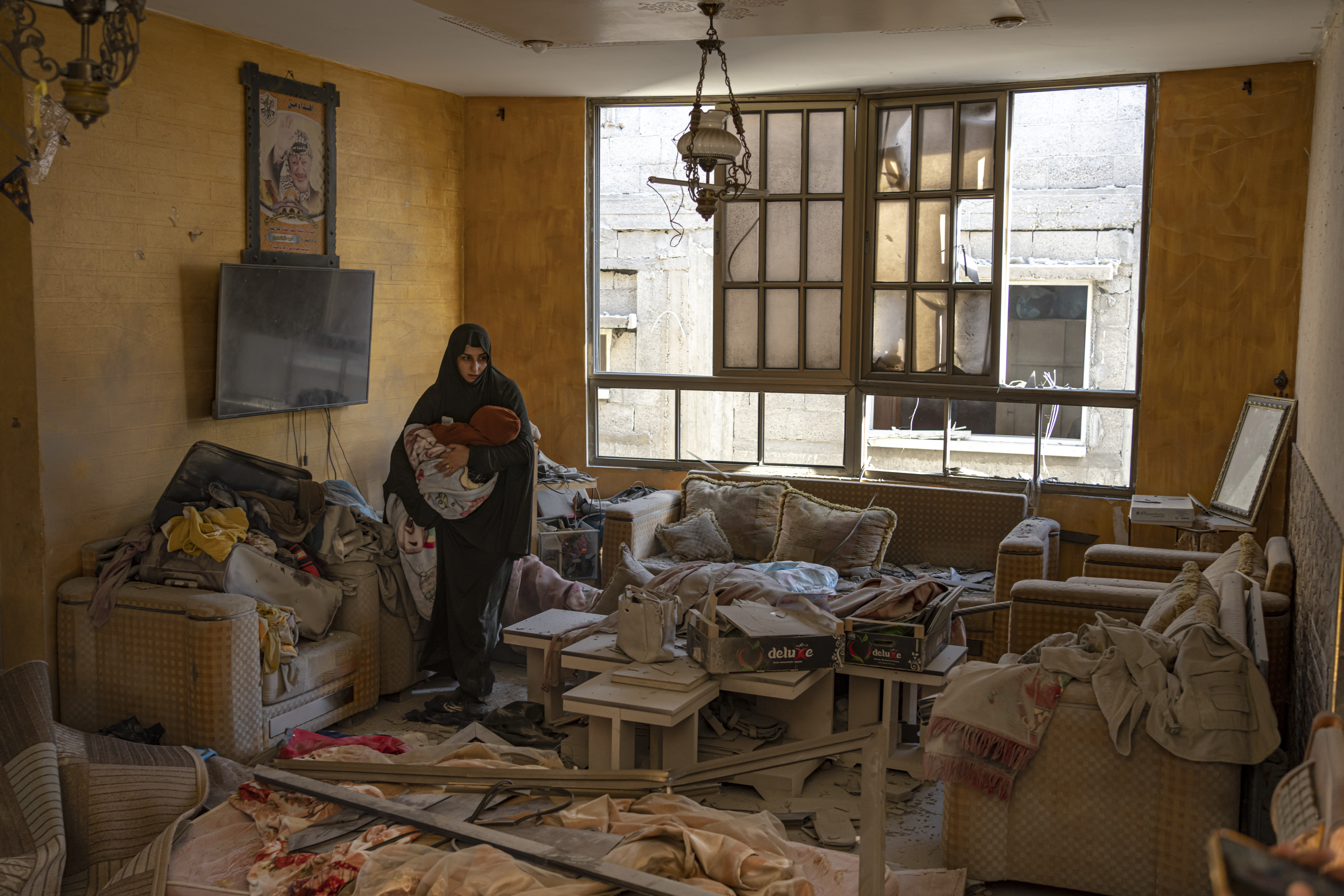
In Gaza, residents reported airstrikes and shelling, including in the southern city of Rafah near the Egyptian border — one area where the Israeli army had told civilians to go. In a colourful classroom there, knee-high children’s tables were strewn with rubble.
“We now live in the Gaza Strip and are governed by the American law of the jungle. America has killed human rights,” said Rafah resident Abu Yasser al-Khatib.
In northern Gaza, Israel has been trying to secure the military’s hold, despite heavy resistance from Hamas. The military said that it found weapons inside a school in Shujaiyah, a densely populated neighbourhood of Gaza City, and that, in a separate incident, militants shot at troops from a UN-run school in the northern town of Beit Hanoun.
With no new cease-fire in sight and humanitarian aid reaching little of Gaza, residents reported severe food shortages. Nine of 10 people in northern Gaza reported spending at least one full day and night without food, according to a World Food Program assessment during the truce. Two of three people in the south said the same. The WFP called the situation “alarming.”
On Saturday, 100 trucks carrying unspecified aid entered Gaza through the Rafah crossing with Egypt, said Wael Abu Omar, a spokesman for the Palestinian Crossings Authority. That is still well below the daily average before the war.
Despite growing international pressure, President Joe Biden’s administration remains opposed to an open-ended cease-fire, arguing it would enable Hamas to continue posing a threat to Israel.
In southern Gaza, thousands were on the run after what residents called a night of heavy gunfire and shelling.
Israel has designated a narrow patch of barren southern coastline, Muwasi, as a safe zone. But Palestinians described desperately overcrowded conditions with scant shelter and no toilets. They faced an overnight temperature of around 11 degrees Celsius.
“I am sleeping on the sand. It’s freezing,” said Soad Qarmoot, who described herself as a cancer patient forced to leave her home in the northern town of Beit Lahiya.
As she spoke, her children huddled around a fire.
